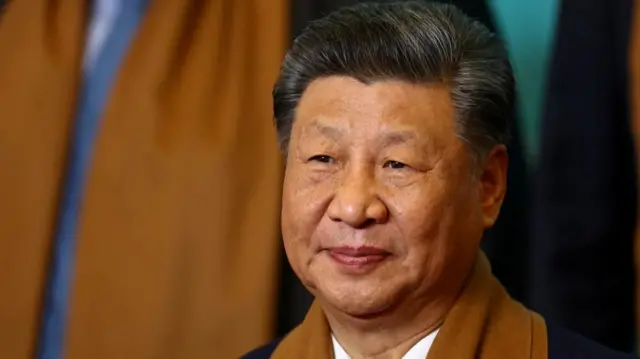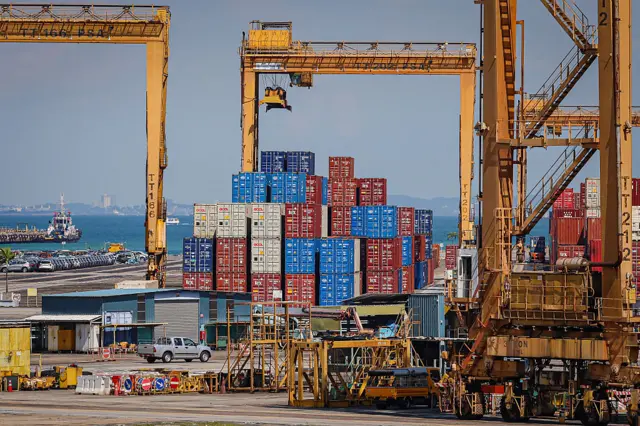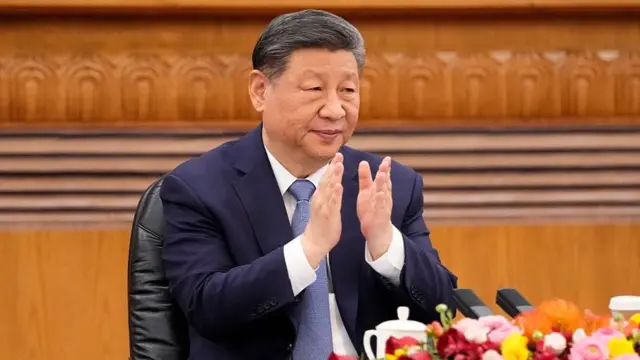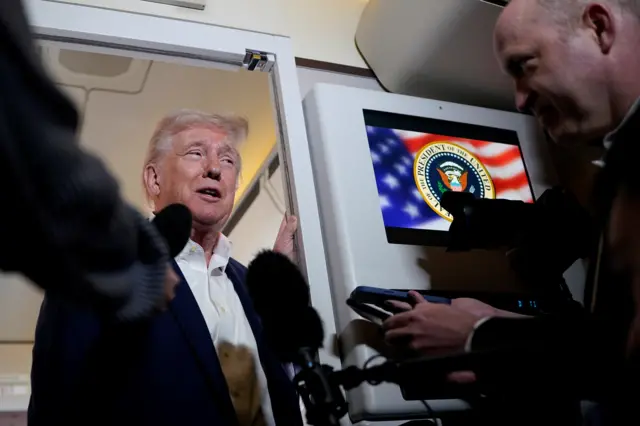What Xi Jinping's agenda looks like todaypublished at 03:06 British Summer Time 14 April
 Image source, Reuters
Image source, ReutersXi Jinping is expected to touch down in Hanoi this afternoon, as he tries to shore up relationships with key trading partners in South East Asia as the region is hit by Trump's tariffs.
He is also expected to reassure the region's leaders over concerns that the shake up of global trade may lead to a flood of cheap Chinese goods.
It marks the start of a trip that will take in Vietnam, Malaysia and Cambodia - which are all in Trump's tariffs crosshairs.
On Monday, Xi will be welcomed by Vietnam's President Luong Cuong. He is then expected to attend a welcome ceremony, followed by a flurry of meetings.
Xi, who last visited Vietnam in December 2023, will meet Communist Party Secretary-General To Lam in the early evening, and then Prime Minister Pham Minh Chinh and National Assembly Chairman Tran Thanh Man.
Ahead of his visit, the Chinese president warned that protectionism "leads nowhere" and that a trade war will have "no winners".
"Our two countries should resolutely safeguard the multilateral trading system, stable global industrial and supply chains, and open and cooperative international environment," Xi wrote in Vietnam's Nhan Dan newspaper.


